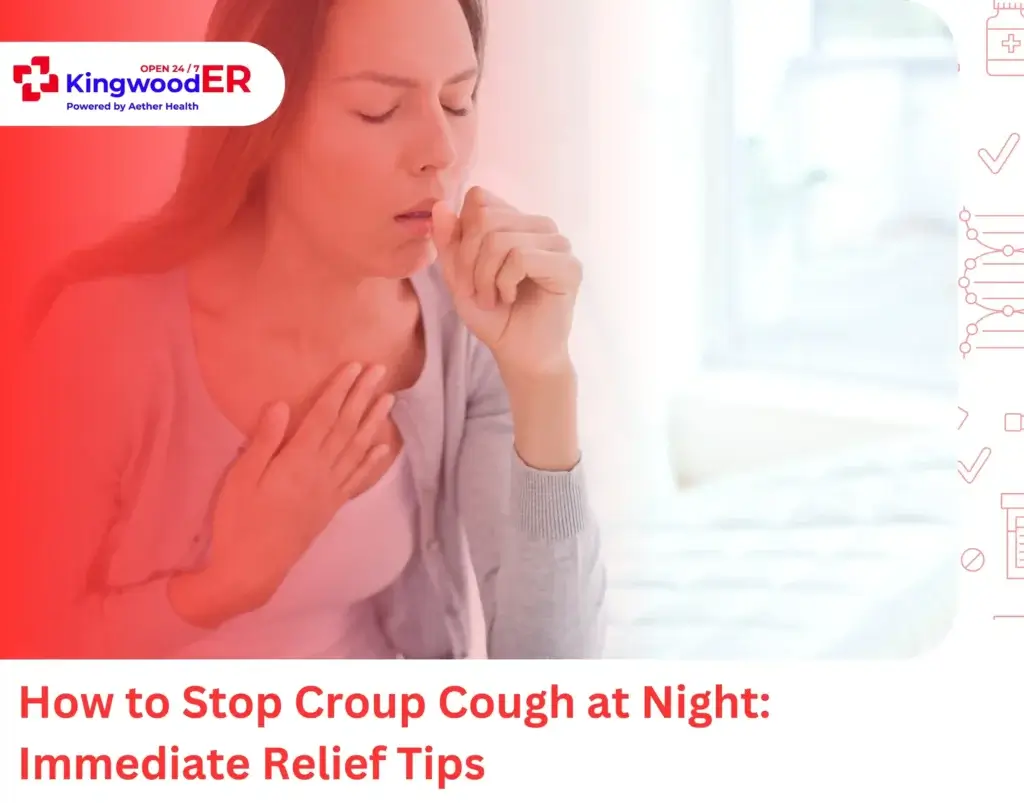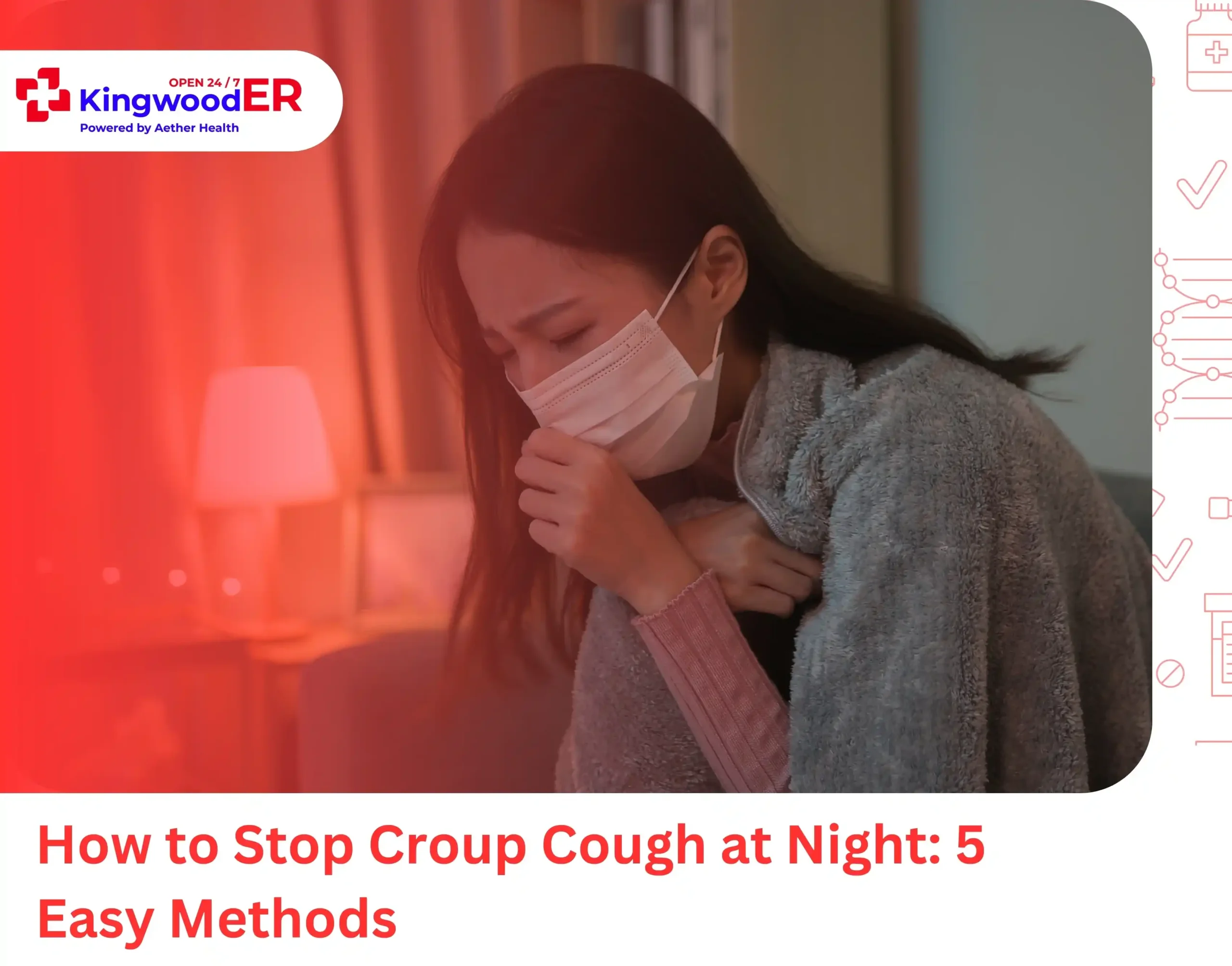Waking up in the middle of the night to the sound of a harsh, barking cough can be alarming for any parent. Croup is a common respiratory condition that mostly affects young children and tends to worsen at night.
Knowing how to stop croup cough at night can bring both comfort and relief to you and your child. Let’s explore what causes croup, why symptoms worsen at night, and five effective ways to manage it.
What Is Croup?

is a viral infection that causes inflammation in the upper airways, particularly around the larynx (voice box) and trachea (windpipe). This inflammation leads to a distinctive ‘barking’ cough, often accompanied by stridor (a high-pitched wheezing sound), hoarseness, and difficulty breathing. Croup is most common in children aged 6 months to 5 years.
The condition typically develops gradually over 1-2 days, starting with cold-like symptoms before progressing to the characteristic barking cough.
Symptoms often peak during the second or third night of illness, which explains why many parents first notice croup’s severity in the middle of the night.
Why Does Croup Get Worse at Night?
The first section suggests cool air is BAD for croup. The relief tips in the next section suggest cool air is GOOD for croup.
- Lying down can make breathing harder due to gravity.
- Natural hormone levels that reduce inflammation are lower at night.
This is why learning how to stop croup cough at night is crucial for reducing nighttime distress.
How to Stop Croup Cough at Night: Immediate Relief Tips

1. Stay Calm
Children can pick up on your anxiety. Staying calm can help them feel more secure. Your composed presence also helps you make better decisions about when symptoms require emergency care versus home management.
2. Use Steam Therapy
Run a hot shower, close the bathroom door, and sit with your child in the steamy room for 10–15 minutes. Moist air helps loosen mucus and reduce swelling.
3. Cool Air Exposure
If steam doesn’t help, try cool night air. Wrap your child in a blanket and step outside for a few minutes. Cool air can soothe swollen airways.
4. Elevate the Head
Keep your child’s head slightly elevated while sleeping to ease breathing. Use an extra pillow or prop up the mattress at the head. This position can help reduce airway compression and can make coughing less intense
5. Hydration
Offer small sips of water or warm liquids to help soothe the throat and keep airways moist. Avoid dairy products which can increase mucus production.
When to Seek Medical Help

While many cases of croup can be treated at home, it’s essential to know when to seek medical attention. Call your doctor or go to the ER if your child:
- Has difficulty breathing or speaks in short sentences
- Makes a high-pitched noise (stridor) even when resting
- Has bluish lips or fingernails
- Shows signs of dehydration
- Has a fever over 102°F (38.9°C) that doesn’t improve
Preventing Nighttime Croup Episodes
To prevent future nighttime episodes of croup:
- Keep your child well-hydrated.
- Use a humidifier in their bedroom.
- Avoid known allergens and respiratory irritants like smoke.
- Practice good hygiene to prevent viral infections.
Final Thoughts on Nighttime Croup
Knowing how to stop croup cough at night can make all the difference in helping your child feel safe and breathe easier. With a calm approach and a few home remedies, most mild cases can be managed effectively.
Always trust your instincts; if something doesn’t feel right, don’t hesitate to reach out to a healthcare provider.
FAQs
1. What triggers croup at night?
Lying down, and low hormone levels can trigger or worsen croup symptoms at night.
2. How long does nighttime croup last?
Most symptoms peak in the first 2-3 nights and gradually improve over a week.
3. Is croup contagious?
Yes. Croup is caused by viruses and can spread through coughs and sneezes.
4. Can adults get croup?
While rare, adults can develop croup-like symptoms, but it’s mostly a childhood illness.
5. Should I give my child cough medicine for croup?
No. Over-the-counter cough medications are not recommended for young children. Always consult a doctor.




